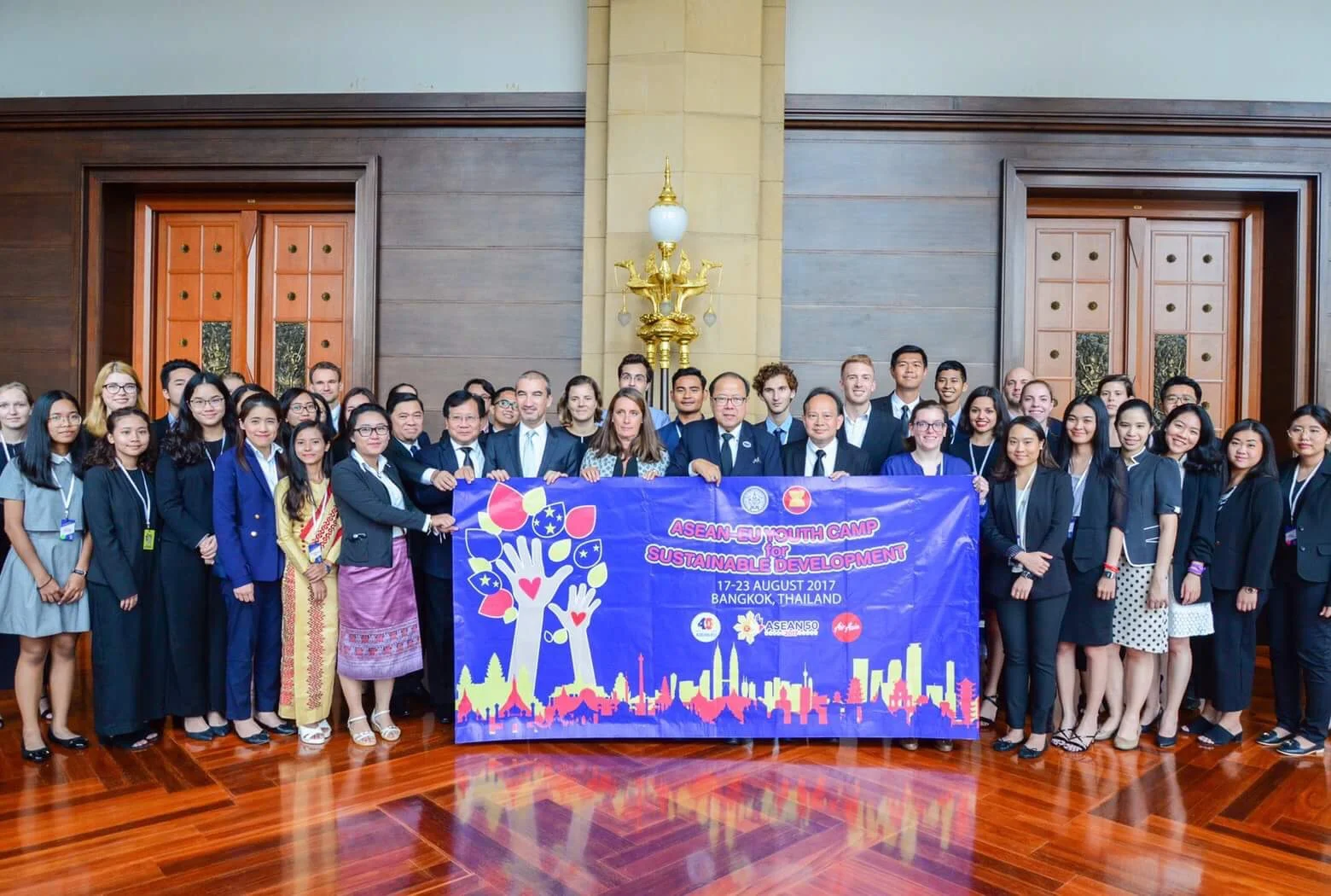BY PONSAWAN GIFT WATANASATHORN
Gift Watanasathorn is a second-year M.A. student at SAIS in the International Law and Organizations Program, with a minor in International Development. She is interested in socioeconomic development and human-rights issues in Southeast Asia. She spent this past summer interning with the Inclusive Growth and Sustainable Development Team at the UN Development Programme’s Bangkok Regional Hub.
This past summer I returned to my home country, Thailand, to work with the UN Development Programme on sustainable development. It was nine months after the passing of the country’s beloved King Bhumipol Adulyadej, and I was exposed to how much his Sufficiency Economy Philosophy (SEP) is being used as a basis for the country to fulfill the UN 2030 Agenda for Sustainable Development.
SEP is based on three pillars: moderation, prudence, and social immunity. It believes that all decisions and activities ought to be carried out at a sufficient level and that people should rely on knowledge and virtue in order to live a happy life. It is about creating immunity for oneself first and then society as a whole.
SEP is not a new concept. It has been taken up, implemented, and applied in Thailand’s national development plans and many projects by both public and private sectors in various provinces for over a decade. However, since the UN's Sustainable Development Goals (SDGs) were adopted in September 2015 and came into force in January 2016, it has become clear that Thailand is showcasing SEP as one of its pathways to achieve the SDGs. More importantly, youth and young leaders are seen as a primary catalyst for the implementation of SEP.
Thailand, being an Association of Southeast Asian Nations (ASEAN) Coordinator for Sustainable Development, is encouraging neighboring countries to engage youth in sustainable development. One of many initiatives is the South-South Knowledge Exchange on Youth Volunteering for the SDGs. Thailand’s International Cooperation Agency, the main agency for international development under the Ministry of Foreign Affairs, also works with ASEAN countries to promote volunteerism among youth through the framework of South-South cooperation as a key modality to harness development opportunities. A youth forum in June highlighted SEP and other approaches from ASEAN countries as best practices and lessons learned in bringing about sustainable development.
The sharing of the SEP is not limited to ASEAN. Thailand has also reached out to countries in the European Union. In August, selected youth and young professionals from ASEAN and EU countries participated in the ASEAN-EU Youth Camp for Sustainable Development to learn about ongoing initiatives in Thailand. Participants exchanged views on regional and inter-regional integration and the role of youth in shaping the 2030 Agenda. One of the projects visited was the Chang Hua Man Royal Project, an experimental organic farm that aims to help local farmers in the area and around the nation. The project mainly focuses on using small plots of land to their full advantage.
Whether or not Thailand, or any other country in the world, will be able to meet some or all of the 169 targets of the SDGs remains a mystery. All I can say for now is that Thailand has had a pretty good start, and hopefully the ideas and plans laid out will be able to be translated into meaningful, concrete, and constructive actions that will make the country one of the most progressive developing countries in the region.
More information about SEP approach for the SDGs can be found at http://www.mfa.go.th/sep4sdgs/en/articles/70260-SEP-Approach-towards-SDGs.html.
PHOTO CREDIT: GIFT WATANASATHORN
Below, the author with colleagues in Bangkok.



